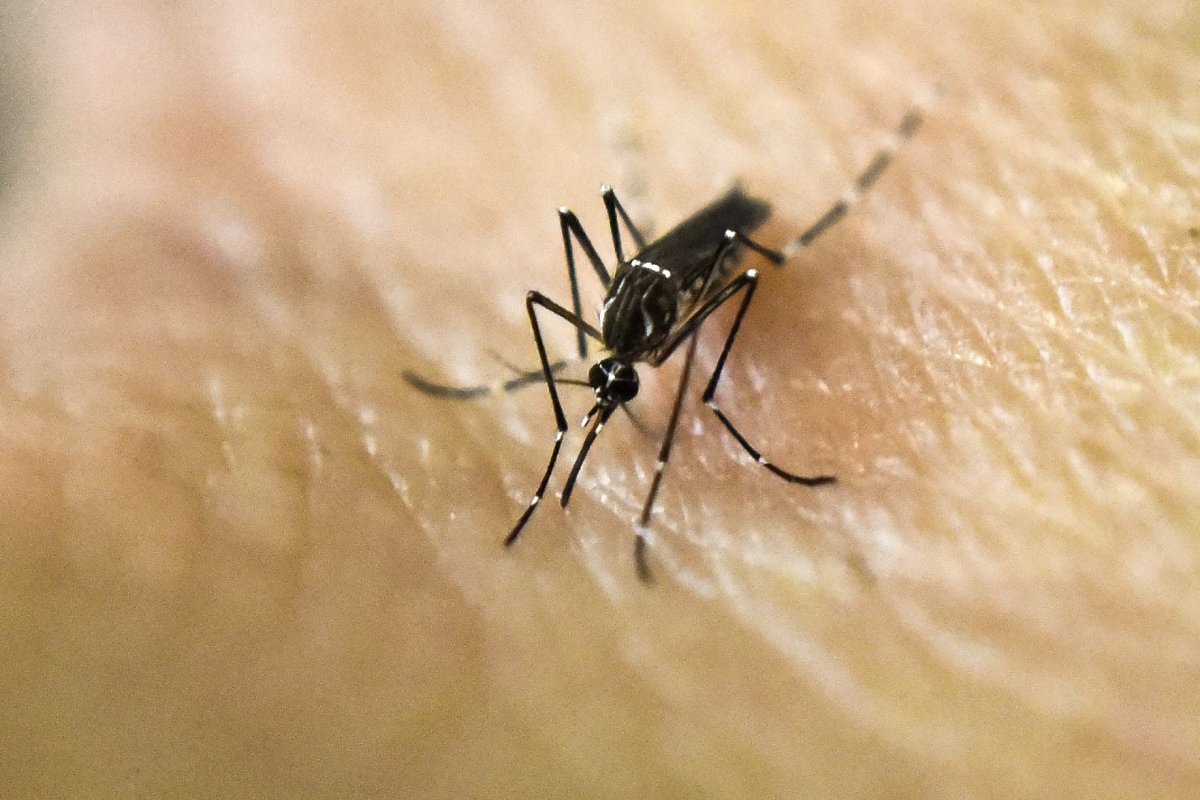Children infected with malaria produce a smell which attracts mosquitoes, according to a new study.
Malaria parasites "tweak the existing human perfume" that mosquitoes already like in a way that makes those with the disease even more appealing, the study's authors told Newsweek.
To investigate whether those infected with malaria release a scent, researchers tested the socks of 56 Kenyan schoolchildren.
In the first study into the odor of people infected with malaria, the team used a laboratory wind tunnel containing Anopheles gambiae mosquitoes, the major culprits of malaria in sub-Saharan Africa. They found that the insects were most attracted to the odor of children with malaria, regardless of the levels of malaria parasites in their blood.

Scientists also tested the mosquitoes' nerve responses to the body odor of malaria patients by connecting the antennae which the insects use to smell to tiny electrodes.
Compared with malaria-free participants, those with the disease let off larger amounts of several compounds known as aldehydes that the insects picked up on. The aldehydes heptanal, octanal, and nonanal, which are used in perfume making, were found to be produced in greater amounts by infected individuals and detected by mosquito antennae.
And the more parasites the children had in their blood, the more aldehydes they gave off, and the stronger they smelled to the insects.
Researchers from the London School of Hygiene & Tropical Medicine, Wageningen University & Research, Rothamsted Research, the International Centre of Insect Physiology and Ecology and Cardiff University, worked together on the study published in the journal Proceedings of the National Academy of Sciences.
Professor James Logan, senior investigator on the study and head of department of Disease Control at the London School of Hygiene & Tropical Medicine, told Newsweek: "In this study we investigated children, however, a next step would be to test whether this also applies to adults. Our hypothesis is that our findings would also relate to adults."
The researchers hope that the compounds associated with the presence of malaria parasites in the blood could be used as biomarkers of infection.
"There's a great need for development of new noninvasive diagnostic tools," said Logan. "Using odors to detect the presence of malaria parasites could be such a novel method. It is important to diagnose carriers of malaria parasites even if they don't feel sick (enough) to visit a clinic."
This could take the form of a smartwatch that detects infections in sweat, alerting the wearer to infection in real time, he suggested.
Professor John Pickett, the co-author from Cardiff University's School of Chemistry, said in a statement that the chemicals could be used to trap mosquitoes and lure them away from human populations. "This idea of a push-pull system is already used in the pest control of crops across sub-Saharan Africa," he said.
The findings come as the fight against malaria has slowed in recent years. In the World Health Organization 2017 World Malaria Report, director Tedros Adhanom Ghebreyesus warned of a "troubling shift" in combating the disease. Less than half of countries with a malaria problem were on track to reach "critical" targets to reduce deaths and disease caused by malaria.
In 2016, there were 261 million cases of malaria reported worldwide—up by 5 million on the previous year.
Study author Jetske de Boer from the Wageningen University & Research told Newsweek that the primary transmitters of malaria are mosquito species that live indoors, which have been combated with provisions such as bed-nets and insecticides. However, species that live outdoors are not being targeted to the same extent.
"In addition, there is increasing insecticide resistance and resistance of the parasite against artemisinins, an important component of antimalarial medication," he said.
"Another significant issue is lack of funding—not only funding for new research but also to fund malaria control programs."
Lauren Cator, a lecturer in Life Sciences and member of the Network of Excellence in Malaria at Imperial College London who wasn't involved in the study, told Newsweek that scientists have reasoned for many years that malaria parasites might alter the smells of their human hosts increase the likelihood that a mosquito might bite them.
"This is the first time that all of the pieces have been put together in one set of experiments using natural human malaria infections and the evidence is very convincing."
Uncommon Knowledge
Newsweek is committed to challenging conventional wisdom and finding connections in the search for common ground.
Newsweek is committed to challenging conventional wisdom and finding connections in the search for common ground.
About the writer
Kashmira Gander is Deputy Science Editor at Newsweek. Her interests include health, gender, LGBTQIA+ issues, human rights, subcultures, music, and lifestyle. Her ... Read more
To read how Newsweek uses AI as a newsroom tool, Click here.








